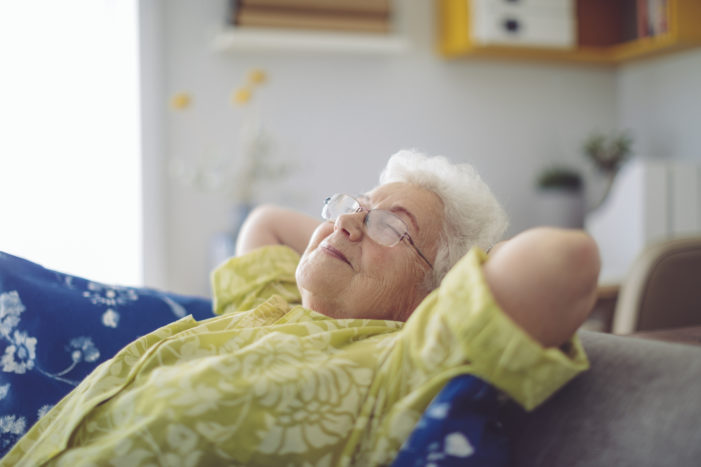
Relaxation is key to reduce stress and improve immunity
The world is experiencing an unprecedented increase in stress and anxiety during the COVID-19 pandemic. Since stress has been shown to weaken immunity, it is important now more than ever to find ways to manage stress. Because of the pandemic, I have temporarily stopped practicing acupuncture in my office as I transition to telemedicine. I am eager and excited to share ways that people can work on managing stress and building immunity from their own homes, like learning to practice the “relaxation response”.
The “relaxation response” is an amazing practice that can be done anywhere. I first heard about this term in a TedX talk given by Dr. Lissa Rankin called “Is there scientific proof we can heal ourselves?”. In her talk, Dr. Rankin gives numerous examples of the power of the mind and its ability to heal the body, including the relaxation response. Dr Herbert Benson, a pioneer in mind / body medicine, created the relaxation response term and practice. The relaxation response counters the fight-or-flight stress response that is activated quite frequently in our modern lives.
The relaxation response works by slowing down the rate of breathing, reducing blood pressure, and relaxing muscles. And, there is no one right or perfect way to practice this. Rather, there are many possibilities that people can consider based on what works best for them. As I studied the relaxation response, I realized that this is one of the many benefits that an acupuncture treatment can bring to patients.
How to practice the relaxation response at home
Dr. Benson has created a simple, nine-minute Youtube video where he guides you through the relaxation response process. Click here to watch “Relaxation Response: Dr. Herbert Benson Teaches you the Basics” on Youtube. Dr. Benson states that only two things are necessary to practice the relaxation response:
- A repeated word (like “peace”, “love”, or “calm”), sound, prayer, phrase, or movement
- Disregard other thoughts when they enter your mind and come back to the repetition
You can sit or lie down in a comfortable position to practice. Close your eyes and breathe slowly. It’s helpful if you can focus your breathing in your lower abdomen, though this isn’t necessary. Repeatedly say your word, sound, prayer, or phrase on your exhalation. If other thoughts come into your mind, Dr. Benson advises you to tell yourself “oh well”. Then, bring yourself back to the repetition and continue. Dr. Benson recommends daily practice for 10-15 minutes. Finish your practice, and take your time getting up and returning to your day.
If you think that this sounds a lot like meditation, you’re right! This is a powerful form of meditation. If the recommended daily 10-15-minute practice feels too long for you, start slowly. Even as little as one minute can be beneficial. Take your time, and gradually build up to a longer practice. Ultimately, having a regular daily practice of at least 10 minutes will be very effective at building immunity and countering daily stress.
Additional ways to practice the relaxation response
One great option to practice the relaxation response is through guided visualization. This can bring the same benefits as the meditation described earlier, but it may feel more doable because all you have to do is sit or lie down in a quiet place and listen to someone else speak. One of my favorite creators of guided visualization tools is Belleruth Naparstek. She has made over one hundred recordings available on iTunes as well as in CD format. Topics range from Immunity to Insomnia & Restful Sleep, Stress, Grief, and Anger & Forgiveness as well as number of condition-specific titles like Headaches, Menopause, and Cancer.
Another favorite is the 21-day medication experience collections created by Deepak Chopra and Oprah Winfrey. Many of these collections are offered for free. Each daily audio program starts out with an inspirational message from Oprah. Deepak follows Oprah with his own words of wisdom. Deepak then suggests a meditation phrase and guides the listener in a 10-minute meditation. At the start of the COVID-19 pandemic, Oprah and Deepak created a series called “Hope in Uncertain Times” which is available for free until May 15th, 2020. After that, it will be available for purchase. The programs last for 21 days because it has been shown that it can take 21 days to create a new habit. I have followed several of these 21-day meditation experiences, and I have purchased some of them. I will often restart a program from day one to start a new 21-day cycle of meditation.
Physical options
While I am a huge proponent of stillness, I also love to experience movement in a meditative form. As mentioned earlier, Dr. Benson states that movement can also elicit the relaxation response. What’s important is having a way to break the train of daily thoughts and stressors. This can be accomplished through repetitive exercise where you become immersed in the movement. Examples include yoga, tai chi, qigong, running, rowing, or even knitting or playing a musical instrument.
Overall, what’s most important is that you find what works for you and commit to a regular daily practice. I think you’ll be thrilled with the benefits you experience!
About the Author
Ericca Burke is the owner of HAVEN Acupuncture & Chinese Medicine where she provides acupuncture and Chinese medicine treatments in Wilmington, NC. Click this link to read more about Ericca.
About HAVEN Acupuncture & Chinese Medicine in Wilmington, NC
HAVEN Acupuncture & Chinese Medicine is an acupuncture and Chinese medicine practice located in Wilmington, NC just minutes from beautiful Wrightsville Beach. Click this link for contact information and directions. Click this link for a listing and description of services offered.